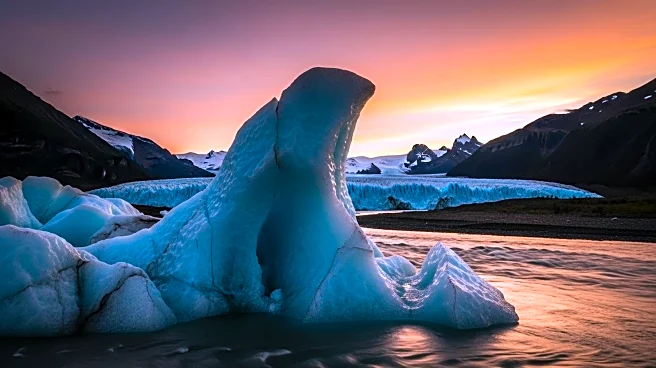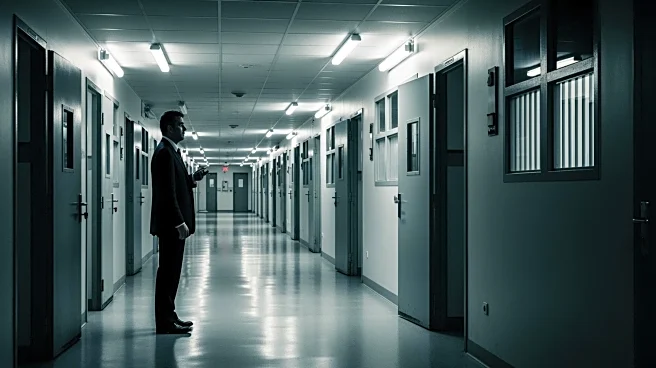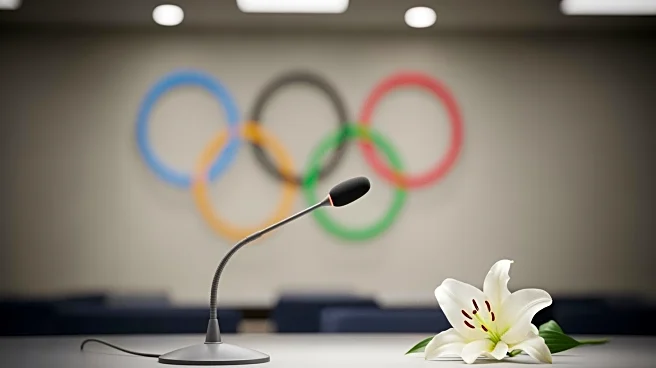What's Happening?
Swiss glaciers are experiencing rapid melting, posing a significant threat to Europe's major rivers, including the Rhine, Rhone, and Danube. Scientists at ETH Zurich have observed that Switzerland's glaciers have lost half their volume between 1931 and 2016, with an additional 12% loss in the following six years. This accelerated melting is attributed to rising temperatures, which are increasing at twice the global average rate across Europe. The melting glaciers serve as natural water towers, releasing stored water during hot and dry summer months, which is crucial for maintaining river levels. The recent collapse of the Birch Glacier in Switzerland led to the evacuation of a village, highlighting the immediate dangers posed by these changes.
Why It's Important?
The rapid melting of glaciers in Switzerland has profound implications for Europe's water supply and ecosystem. As glaciers disappear, the timing and availability of water in major rivers will be altered, affecting agriculture, transportation, and energy production. The Rhine River, a key transportation artery for Germany's economy, has already experienced record low water levels, prompting the development of low-water barges. The loss of glaciers could lead to severe water shortages during dry summers, impacting millions of people and industries reliant on consistent water flow. This situation underscores the urgent need for climate adaptation strategies to mitigate the effects of global warming.
What's Next?
As glaciers continue to melt, European countries may need to invest in infrastructure and technology to adapt to changing water levels. This includes developing new transportation methods, such as low-water barges, and implementing water conservation measures. Scientists will continue monitoring glacier changes to predict future impacts and inform policy decisions. The situation may also prompt increased international cooperation to address climate change and its effects on shared water resources.
Beyond the Headlines
The melting glaciers highlight the broader issue of climate change and its impact on natural resources. This situation raises ethical questions about the responsibility of nations to reduce carbon emissions and protect vulnerable ecosystems. The visual impact of disappearing glaciers serves as a powerful symbol of climate change, potentially influencing public opinion and policy decisions.








